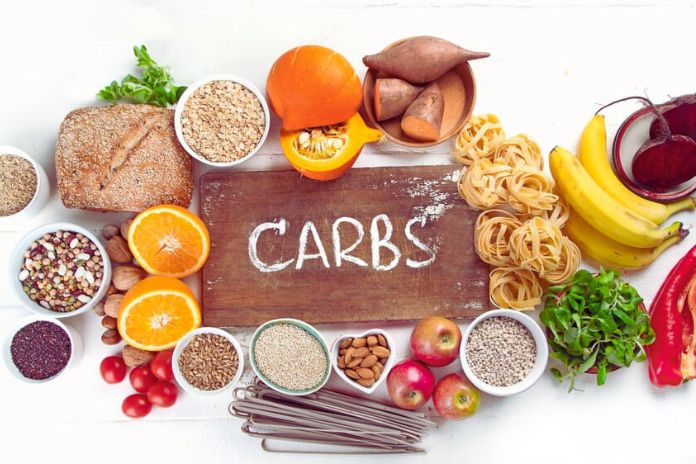In a low-carb world, consuming bread, pasta, rice, and fruit has become almost a sin! Many people eliminate these products from their menus for the perfect body. But is this the best alternative for health? What are the good carbs, and why shouldn’t we exclude them from our diet?
In another article, we already talked about the low-carb diet, and today we understand that it is necessary to explain more about the importance of carbohydrates for health. Read on to find out more about this food group.
What Are Carbohydrates?
Carbohydrates are a very important macronutrient for the body, as their main function is to provide energy to carry out day-to-day activities . Therefore, it works as fuel for the body.
Many foods contain carbohydrates, even vegetables and legumes.
However, some foods have a higher concentration of carbohydrates. Therefore, they are grouped into a single category and are generically called carbohydrates. The group of carbohydrates is formed by:
Cereals and grains: rice, corn, oats, wheat, rye, barley, quinoa, amaranth, etc. Foods derived from these are also considered carbohydrates, such as bread, pasta, cakes, pie dough, cookies, and cookies.
Tubers: potatoes, cassava, sweet potatoes, yams, radishes, carrots, turnips, and beets. Among its derivatives, we can highlight potato and corn starch, manioc starch, and tapioca starch.
Honey: contains 70 g of carbohydrates in each 100 g serving.
Fruits: although some fruits contain a lower concentration of carbohydrates, all have this macronutrient in some proportion.
Sugar cane: this plant is considered grass; it is not a fruit or vegetable. However, its sweet taste is known by those who consume it naturally or in cane juice. It is also the basis for manufacturing sugar, a product widely used in cooking and has up to 99.5 g of carbohydrates in a 100 g serving.
How Important Are Carbohydrates?
Carbohydrates are essential for health. As we said, they are the body’s main energy source. Our body understands that it first needs to consume glucose as fuel, and fat reserves are considered an emergency alternative.
Therefore, although the body prefers energy through glucose, it can also fuel itself from fat. Some organs and cells, such as red blood cells, kidneys, and the brain, cannot use fat.
Therefore, carbohydrates are extremely important for the proper functioning of the mind. This is one of the reasons why the low-carb diet is not the best alternative for the body. The idea is to learn to balance the nutrients consumed so that weight loss does not happen at the expense of a nutritional and functional deficiency.
But Aren’t Carbohydrates Fattening?
In recent years, a belief has spread that carbohydrates make you fat. Therefore, they came to be seen as great villains in slimming diets. However, this is different from the reality.
As you saw above, there are many carbohydrate-rich foods. The range of choices is quite wide, including both extremely healthy foods and other products known to be harmful to the body. O
Fattening is using carbohydrates that are harmful to the body or consuming them in an exaggerated proportion, incompatible with individual needs. The result of consuming a baked potato made at home is very different from eating a portion of fries at fast food for weight maintenance and health.
After All, What Are The Good Carbs?
Some criteria help us to choose the carbohydrates that are good for the body. See what they are:
Prefer Integrals
Whole foods are the best choice for those who want to maintain a healthy diet. In addition to being more nutritious, they are rich in fiber. Therefore, they provide satiety for a prolonged period, prevent the occurrence of blood glucose spikes, and act in the intestine, causing the body to absorb a smaller amount of calories.
So when choosing bread, pasta, or any other cereal, avoid refined versions. This will contribute to maintaining a healthy weight, the proper functioning of the intestine, and controlling diabetes, among other benefits.
Avoid Empty Calories
Empty calories are those we consume; they are transformed into energy within the body and can become fat deposits, but they do not have any nutrients such as vitamins and mineral salts.
Examples of empty calories include sweets. They are highly caloric and even produce that feeling of comfort and well-being. However, in addition to not providing any vitamins, they weaken the body’s defenses, making it more susceptible to diseases.
Sweets, soft drinks, bottled or boxed juices, industrialized cookies and crackers, snacks, white bread, and refined pasta — avoiding them is good for your health and keeps your balance under control.
Consume natural foodsThe more natural the version of the foods you consume, the greater the benefits to your health. A good example is fruits that are rich in fiber and vitamins when just peeled and eaten. Some of these properties are lost by processing, cooking, and transforming them into sweets, and they can even become unhealthy dishes.
Maintain Proper Proportion
Remember that the body has many needs that must be met through food. Therefore, understanding that your body needs carbohydrates differs from believing you only need to eat carbohydrates.
Balancing your menu with other food groups, such as proteins and regulators, is necessary. There is a simple formula not to be counting calories all the time. Here on the site, we already teach you how to prepare a FAROL DISH, which has the ideal proportion of vegetables, proteins, and carbohydrates.
Also Read: What Are The Causes Of Increased Bad Cholesterol?

